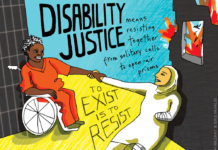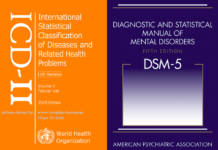Psychosocial Approaches to Schizophrenia with Limited Antipsychotic Use
Researchers review nine previously studied psychosocial approaches and call for more high-quality trials treating schizophrenia with minimal to no antipsychotics.
Creating Our Mental Health
We wanted to challenge the conventional assumption that mental health is a static condition or attribute by suggesting that it’s more useful to think of it as an activity that people do together, rather than a thing that individuals have or don’t have. This distinction matters because we can change what we do — what we are, not so much.
The Mystic of Ireland: An Homage to Ivor Browne
Ivor Browne fearlessly challenged what he saw as a dehumanizing system, liberating many from institutional care and pioneering new experimental therapies. He developed innovative community models and most of his groundbreaking work took place outside of, and in spite of, orthodox thinking.
Collaborative Strategies for Re-Visioning the Public Mental Health System
The beauty of sticking around for a while is that we’re living to see some of our “outsider” ideas beginning to challenge modern psychiatric doctrine in the public arena, and our “radical” mental health stance is slowly re-visioning important conversations and practices.
Disability and Decolonial Studies Disrupt the Medical Model
Critical disability studies and decolonial analyses take on structural oppression and challenge concepts of normality, mental health, and ability.
In Defense of Anger
The therapy industry has aided and abetted the rejection of anger our society is hell-bent on, and made it astoundingly difficult to know what healthy anger looks like. I clawed myself apart trying to “heal” from all this anger, which compounded with every failure to dispel the anger until I was basically a human-shaped sack of rage.
Neuroscientists Suggest That Social Inequalities Can Permanently Alter Our Brains
A recently published article illustrates how the concept of neuroplasticity has been used to explain social inequalities, like poverty, by linking them to biomarkers in the brain.
Addressing the Roots of Racial Trauma: An Interview with Psychologist Lillian Comas-Díaz
MIA’s Hannah Emerson interviews Comas-Díaz on the need for culturally competent care in a medicalized and individualistic society.
No Evidence for Brain Asymmetry in Depression
A new study debunks the theory that depression is associated with brain asymmetry.
No Graphic Detail: The Injustice of Being Silenced
They tell us we’re too fragile to speak our own truth, and that those around us are too fragile to hear it. If you must name what happened to you, at least slap a “trigger warning” on yourself, and don’t “paint a picture.” Fuck that. The truth is that graphic detail can make some of us stronger in a way that silence never could.
We Must Hear Marianne Williamson’s Message About the Overuse of Antidepressants
Although some of Marianne Williamson's rhetoric on the subject of the overuse of prescription medications may be over the top, the topic deserves much more public attention and debate, since it is a crisis as real as the opioid epidemic.
“Peers,” Therapeutic Harm, and Buddhist Forgiveness
I'd like to be peers with anyone struggling against persecution, anyone struggling toward the promise of dignity and respect for marginalized communities, for freaks and weirdos. To fit the diversity of our experiences, maybe our definitions need to be as flexible and individual as we are.
Brave New Apps: The Arrival of Surveillance Psychiatry
Large, centralized, digital social networks and data-gathering platforms have come to dominate our economy and our culture. In the domain of mental health, huge pools of data are being used to train algorithms to identify signs of mental illness. I call this practice surveillance psychiatry.
Blaming the “Mentally Ill”: This is Hate Speech
As could be expected, in the wake of the mass murders in El Paso and Dayton, we have politicians such as President Trump and others such as E. Fuller Torrey blaming the killings on the “mentally ill.” We have heard this over and over again, and I think it is time to call this out for what it is: Hate Speech.
Study Explores Service Users’ Views on Diagnostic Criteria
Researchers investigate service users' lived experiences and their views on mental disorder classifications.
Derek Blumke – The Mad in America Veterans Initiative
On MIA Radio we interview Derek Blumke, who tells of his time serving in the military, his experiences taking and coming off psychiatric drugs and his role as editor of MIA's new Veterans Initiative.
How Biotechologies Preserve the Idea of the Disordered Brain
Social scientists explore how psychiatry’s use of biotechnology is being used to reinvent and secure the idea of the disordered brain
Antidepressants and the National Suicide Epidemic
We encourage young people to see themselves as fragile creatures whose brains can go haywire for any reason, or no reason at all. Then we tell them they have the “disease” of depression and ply them with drugs with a known link to worsening depression and suicidality going back for decades. How many more will have to die before this changes?
Risk of Cardiovascular Death Increased After Psychiatric Hospitalization
The rate of death due to heart-related problems is more than double the rate in the general population after psychiatric hospitalization.
Adding Fluoxetine to Therapy Not Superior to Therapy Alone in Depressed Teens
The addition of fluoxetine to CBT did not further reduce depressive symptoms in young people with moderate-to-severe depression.
How “Safe Messaging” Gaslights Suicidal People
Suicide prevention constructs a reality in which the problems of suicide lie within suicidal people. Sanity is constructed around wanting to live, insanity around wanting to die. Within this paradigm, the suicidal person can never be trusted. They are fragile, vulnerable, demanding protection, surveillance, and management.
Craig Wiener – ADHD: A Return to Psychology
On MIA Radio this week, Miranda Spencer, Mad in America's Parent Resources editor, interviews Dr. Craig Wiener, a licensed psychologist who specializes in the treatment of children, adolescents, and families. He discusses approaches to helping children with "ADHD" behavior that don't involve drugs and constant monitoring.
Improving Mental Health Research through Community Participation
Clinical mental health research that includes community participation circumvents problems with traditional research.
Toward a Critical Self-Reflective Psychiatry: An Interview with Pat Bracken
MIA’s Justin Karter interviews critical psychiatrist and philosopher Pat Bracken about the necessity of challenging received wisdom.
Helping People Come Off Medication—Bad for Business?
The message in journal editorials, comments and opinion articles, is that 'this new study shows great promise' and that 'we need further research'. My interpretation is: 'give us the money and we will be happy to carry this out'. With the implied promise that, once this new research has been done, we will get a better world. Sadly this is rarely ever the case.

































